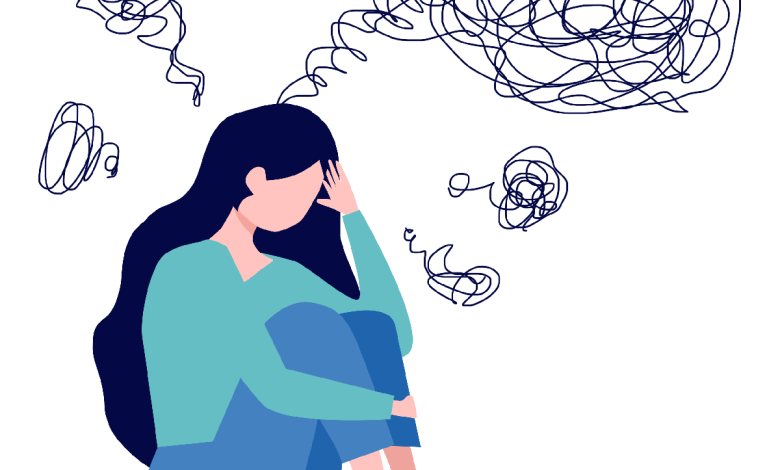What Is The Safest Anti-Anxiety Drug?

Anxiety is a common mental health condition that affects millions of people worldwide. While therapy and lifestyle changes can help manage anxiety, medication is often prescribed for people with moderate to severe symptoms. However, many anti-anxiety drugs come with side effects and risks, and some are more effective and safer than others.
In this article, we will explore the safest anti-anxiety drugs available, including their benefits, risks, and effectiveness. We will also discuss the different types of anti-anxiety medication and when they are appropriate for use.
Understanding Anxiety Disorders
Anxiety disorders are a group of mental health conditions characterized by excessive worry, fear, and nervousness. These conditions can interfere with daily activities, relationships, and overall quality of life. Some common types of anxiety disorders include:
1. Generalized Anxiety Disorder (GAD): GAD is a chronic condition characterized by persistent and excessive worry about various aspects of daily life.
2. Panic Disorder: Panic disorder is a condition in which a person experiences sudden, unexpected attacks of intense fear and physical symptoms such as chest pain, shortness of breath, and dizziness.
3. Social Anxiety Disorder (SAD): SAD is a condition in which a person experiences intense fear and anxiety in social situations, such as public speaking or meeting new people.
4. Obsessive-Compulsive Disorder (OCD): OCD is a condition in which a person has obsessive thoughts or fears that lead to compulsive behaviors, such as excessive hand washing or checking.
5. Post-Traumatic Stress Disorder (PTSD): PTSD is a condition in which a person experiences severe anxiety and other symptoms after experiencing or witnessing a traumatic event.
6. Specific Phobia: Specific phobia is a condition in which a person has an intense fear of a specific object or situation, such as spiders, heights, or flying.
Anxiety disorders can be treated with therapy, medication, or a combination of both. Therapy, such as cognitive-behavioral therapy (CBT), can help people learn to manage their symptoms and develop coping strategies. Medication can help relieve symptoms of anxiety and improve overall functioning.
Types of Anti-Anxiety Medication
There are several types of anti-anxiety medication available, each with its own benefits and risks. The most common types of medication used to treat anxiety include:
1. Benzodiazepines: Benzodiazepines are a class of drugs that act as central nervous system depressants. They work by enhancing the activity of a neurotransmitter called gamma-aminobutyric acid (GABA), which helps to calm the brain and reduce anxiety. Some common benzodiazepines include Xanax, Valium, and Ativan.
2. Selective Serotonin Reuptake Inhibitors (SSRIs): SSRIs are a type of antidepressant that can also be used to treat anxiety. They work by increasing the levels of the neurotransmitter serotonin in the brain, which can help regulate mood and reduce anxiety. Some common SSRIs include Prozac, Zoloft, and Lexapro.
3. Serotonin-Norepinephrine Reuptake Inhibitors (SNRIs): SNRIs are another type of antidepressant that can be used to treat anxiety. They work by increasing the levels of both serotonin and norepinephrine in the brain, which can help regulate mood and reduce anxiety. Some common SNRIs include Effexor and Cymbalta.
4. Beta-Blockers: Beta-blockers are a type of medication that can help reduce the physical symptoms of anxiety, such as rapid heartbeat and shaking. They work by blocking the effects of the hormone adrenaline, which is responsible for the “fight or flight” response. Some common beta-blockers include Inderal and Tenormin.
5. Buspirone: Buspirone is a non-benzodiazepine medication that can be used to treat anxiety. It works by binding to serotonin and dopamine receptors in the brain, which can help reduce anxiety and improve mood.
6. Pregabalin: Pregabalin is an anticonvulsant medication that can also be used to treat anxiety. It works by reducing the release of certain neurotransmitters in the brain, which can help regulate mood and reduce anxiety.
7. Hydroxyzine: Hydroxyzine is an antihistamine medication that can also be used to treat anxiety. It works by blocking the effects of histamine in the brain, which can help reduce anxiety and improve sleep.
Each type of anti-anxiety medication has its own set of benefits and risks, and some may be more appropriate for certain types of anxiety disorders or individual situations. For example, benzodiazepines are often used for short-term treatment of acute anxiety, while SSRIs and SNRIs may be better suited for long-term treatment of chronic anxiety.
Safety Considerations for Anti-Anxiety Medication
While anti-anxiety medication can be effective in reducing symptoms of anxiety, it’s important to understand the potential risks and side effects before taking any medication. Some common safety considerations for anti-anxiety medication include:
1. Addiction and dependence: Benzodiazepines in particular can be highly addictive and may lead to dependence with long-term use. It’s important to use these medications only as directed and to taper off slowly under the guidance of a healthcare professional.
2. Side effects: All medications have the potential for side effects, and some anti-anxiety medications can cause drowsiness, dizziness, nausea, or other side effects. It’s important to discuss potential side effects with a healthcare professional before taking any medication.
3. Interactions with other medications: Some anti-anxiety medications can interact with other medications or supplements, potentially causing harmful side effects. It’s important to inform a healthcare professional of all medications and supplements being taken.
4. Pregnancy and breastfeeding: Some anti-anxiety medications may not be safe for use during pregnancy or breastfeeding. It’s important to discuss potential risks and benefits with a healthcare professional before taking any medication.
5. Driving and operating machinery: Some anti-anxiety medications can cause drowsiness or impair cognitive function, which can affect the ability to drive or operate machinery. It’s important to avoid these activities until the effects of the medication are known.
The Safest Anti-Anxiety Medications
When it comes to determining the safest anti-anxiety medication, it’s important to consider the potential benefits and risks of each medication, as well as the individual needs and circumstances of the person taking the medication.
In general, medications that have a lower risk of addiction or dependence, fewer side effects, and a lower potential for interactions with other medications or supplements may be considered safer options for treating anxiety.
Some of the safest anti-anxiety medications include:
1. Buspirone: Buspirone is a non-benzodiazepine medication that has a low risk of addiction or dependence and few side effects. It may be a good option for people with mild to moderate anxiety who are looking for a non-addictive medication.
2. SSRIs: Selective serotonin reuptake inhibitors (SSRIs) have a lower risk of addiction or dependence compared to benzodiazepines and may be a safer option for long-term treatment of anxiety. They also have fewer side effects than some other types of antidepressants.
3. SNRIs: Serotonin-norepinephrine reuptake inhibitors (SNRIs) are another type of antidepressant that can be used to treat anxiety. They have a lower risk of addiction or dependence than benzodiazepines and may be a safer option for long-term treatment of anxiety.
4. Hydroxyzine: Hydroxyzine is an antihistamine medication that has a low risk of addiction or dependence and few side effects. It may be a good option for people with mild to moderate anxiety who are looking for a non-addictive medication.
5. Beta-blockers: Beta-blockers are a type of medication that can be used to treat anxiety by blocking the effects of adrenaline in the body. They have a low risk of addiction or dependence and may be a safer option for people with anxiety related to performance or social situations.
While these medications may be considered safer options for treating anxiety, it’s important to understand that all medications carry potential risks and side effects, and what may be safe for one person may not be safe for another.
It’s important to discuss potential risks and benefits with a healthcare professional before taking any medication, and to use medications only as directed and under the guidance of a healthcare professional.
Non-Medication Treatments for Anxiety
While medication can be an effective treatment for anxiety, it’s not the only option. There are a variety of non-medication treatments that can be used to reduce symptoms of anxiety, including:
1. Therapy: Psychotherapy, or talk therapy, can be an effective treatment for anxiety by helping individuals understand and manage their thoughts, emotions, and behaviors related to anxiety.
2. Mindfulness and meditation: Mindfulness and meditation practices can help reduce symptoms of anxiety by promoting relaxation, reducing stress, and increasing self-awareness.
3. Exercise: Regular exercise can help reduce symptoms of anxiety by reducing stress, promoting relaxation, and improving overall physical and mental health.
4. Relaxation techniques: Relaxation techniques such as deep breathing, progressive muscle relaxation, and visualization can help reduce symptoms of anxiety by promoting relaxation and reducing stress.
5. Lifestyle changes: Making lifestyle changes such as getting enough sleep, eating a healthy diet, and reducing caffeine and alcohol intake can help reduce symptoms of anxiety by promoting overall physical and mental health.
Conclusion
Anxiety can be a debilitating condition that can significantly impact daily life. While medication can be an effective treatment for anxiety, it’s important to understand the potential risks and side effects before taking any medication.
In general, medications that have a lower risk of addiction or dependence, fewer side effects, and a lower potential for interactions with other medications or supplements may be considered safer options for treating anxiety.
However, it’s important to discuss potential risks and benefits with a healthcare professional before taking any medication, and to use medications only as directed and under the guidance of a healthcare professional.
Non-medication treatments such as therapy, mindfulness and meditation, exercise, relaxation techniques, and lifestyle changes can also be effective in reducing symptoms of anxiety.
Overall, finding the right treatment for anxiety is a personal process that may require some trial and error. With the help of a healthcare professional, individuals can work to find the safest and most effective treatment for their individual needs and circumstances.





